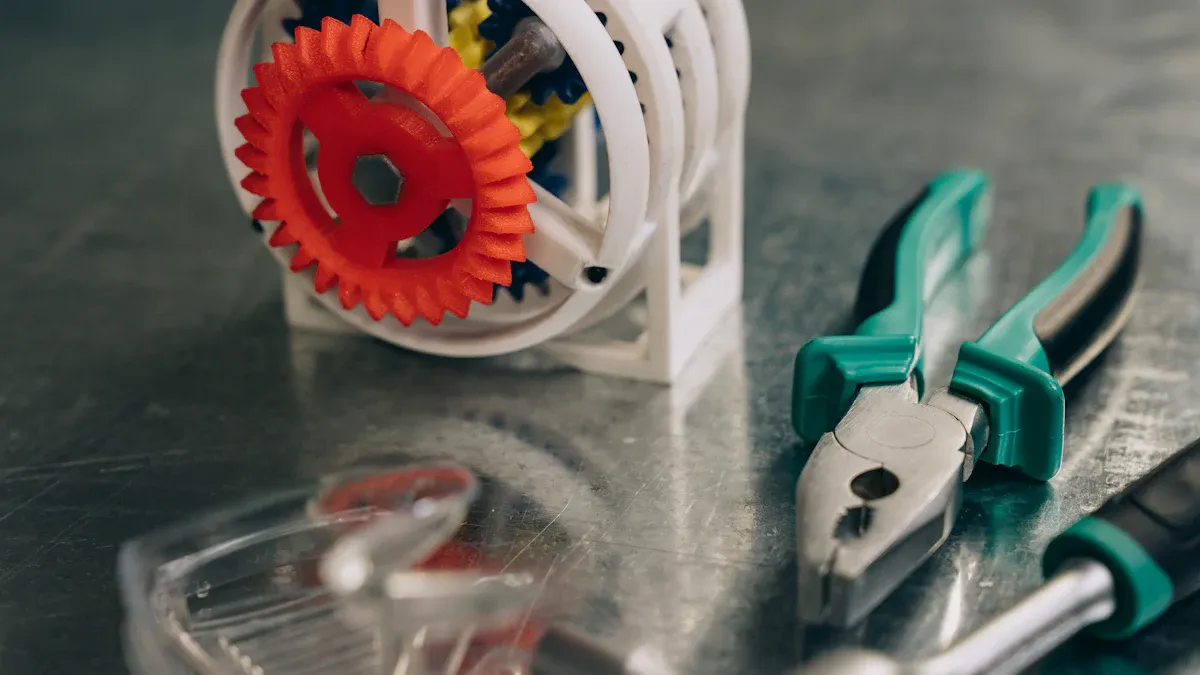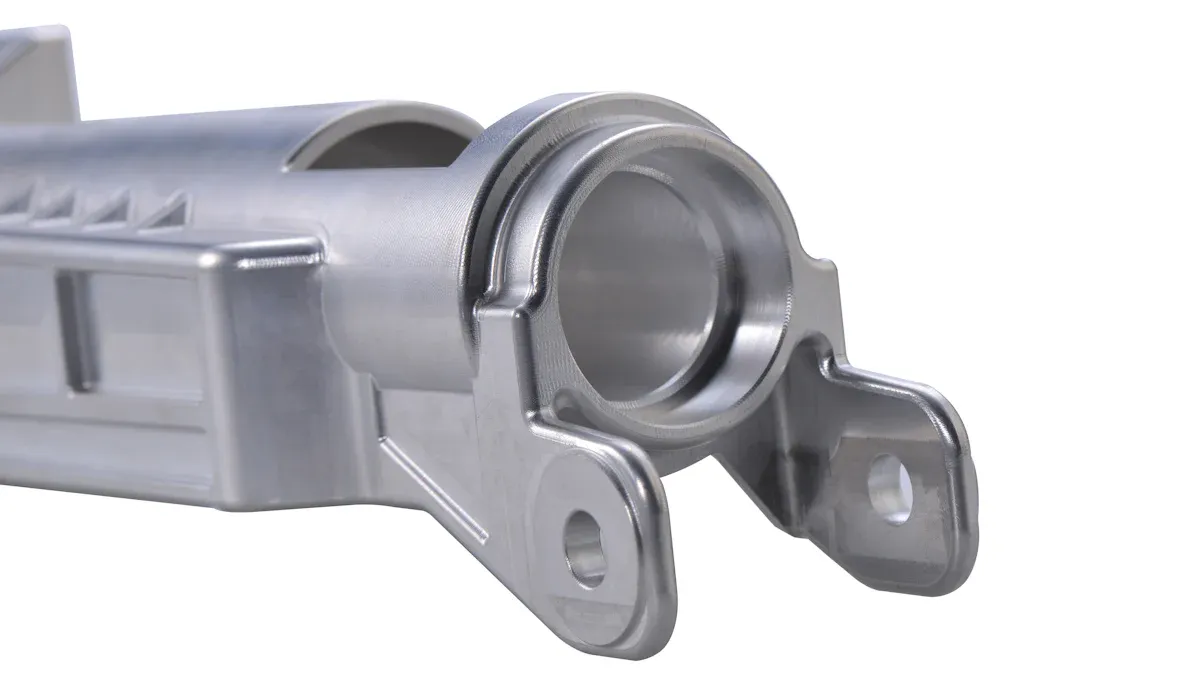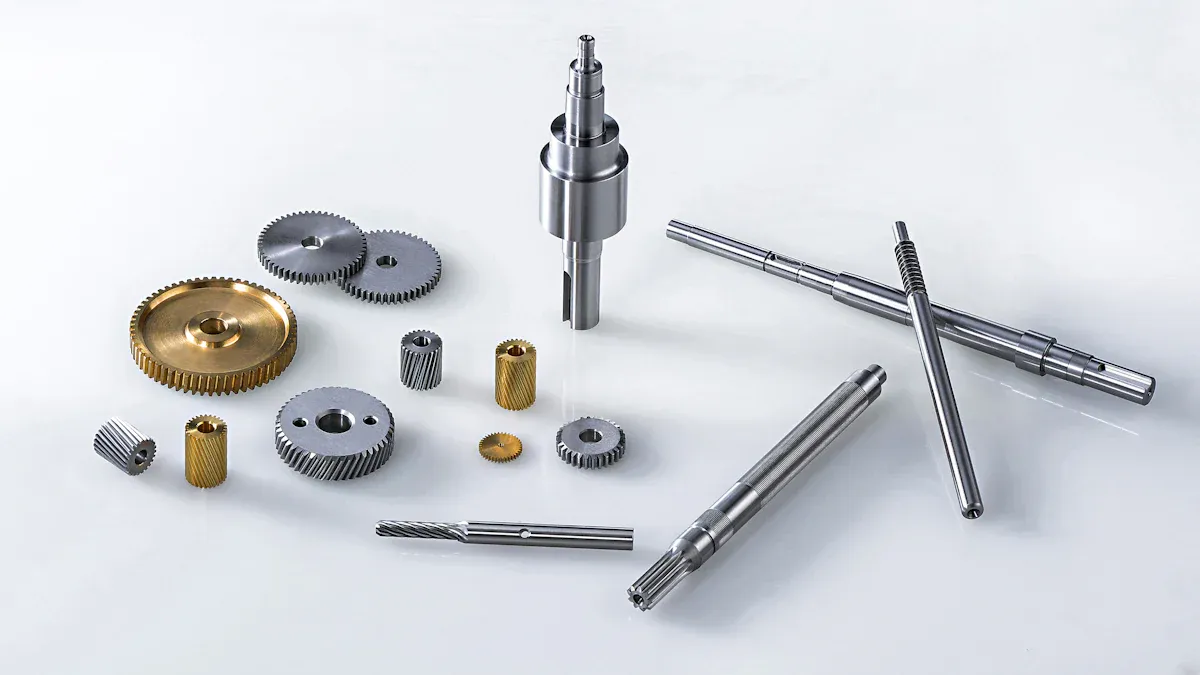
A single screw barrel for recycling granulation helps machines last longer by fighting off wear and tear. Many operators choose a Single Plastic Screw Barrel Supplier or a Pvc Pipe Single Screw Barrel Manufacturer for this reason. Even Film Blown Screw users see smoother operations and fewer breakdowns with the right barrel.
Single Screw Barrel for Recycling Granulation: Reducing Wear and Tear

Core Functions in Plastic Granulation
Plastic granulation turns waste plastic into small, uniform pellets. This process helps recycling plants reuse materials and cut down on waste. The single screw barrel for recycling granulation plays a key role in this process. It moves, melts, and shapes the plastic so it can be cut into pellets.
Here are the main steps in plastic granulation that affect how well the equipment works:
- Workers collect and sort plastics to make sure the materials match.
- Machines clean and shred the plastic to remove dirt and make smaller pieces.
- The shredded plastic gets dried to remove water that could hurt the final product.
- The single screw barrel melts and pushes the plastic through a die to form strands.
- Cutters chop the strands into even granules.
- The granules cool and pass through filters to remove any leftover impurities.
Researchers have found that the type of plastic, the size of the granules, and how the machine runs all matter. Good process control keeps the equipment running smoothly and helps make high-quality pellets. Scientists also use models to study how granules form and break apart. These studies help engineers design better machines and improve the recycling process.
Main Causes of Wear and Tear in Recycling Processes
Wear and tear can slow down recycling machines and lead to costly repairs. Several things cause this damage during plastic granulation:
- Hard plastic pieces or foreign objects can scratch or gouge the barrel.
- High temperatures and pressure inside the barrel can weaken the metal over time.
- Some plastics contain chemicals that react with the metal, causing corrosion.
- Fast screw speeds and heavy loads increase friction, which leads to more abrasion.
- Poor cleaning or leftover material can build up and create rough spots inside the barrel.
Operators must watch for these problems. If they ignore them, the single screw barrel for recycling granulation may not last as long. Regular checks and careful operation help reduce these risks.
Design Features That Minimize Abrasion and Corrosion
Engineers design the single screw barrel for recycling granulation to fight off wear and tear. They use special materials and coatings to protect the barrel from damage. Here are some important design features:
- Manufacturers use tough alloy steels like 38CrMoAl, which resist both abrasion and corrosion.
- The barrel goes through a nitriding process. This makes the surface very hard, so it can handle rough plastics and high pressure.
- Some barrels have a nickel-based alloy or even tungsten carbide layer. These layers add extra strength and keep the barrel from wearing out too fast.
- A thin layer of chromium plating helps stop rust and chemical attacks.
- Precision machining keeps the inside of the barrel smooth. This reduces friction and stops material from sticking or causing scratches.
- Engineers make sure welds and joints are smooth and tight. This prevents cracks where corrosion could start.
- Some designs allow for easy replacement of high-wear parts, so maintenance is faster and cheaper.
Tip: Choosing the right barrel design and material for each type of plastic can make a big difference in how long the equipment lasts.
These features help the single screw barrel for recycling granulation stay strong, even when working with tough or dirty plastics. Plants that use these barrels see fewer breakdowns and lower repair costs.
Operational Practices and Maintenance for Single Screw Barrel Longevity
Optimal Operating Parameters for Wear Reduction
Operators can help the single screw barrel for recycling granulation last longer by running machines at the right settings. They should keep the temperature and pressure within the recommended range for each type of plastic. Running the screw at a steady speed helps prevent sudden stress on the barrel. When workers avoid overloading the machine, they reduce friction and heat, which means less wear. It also helps to use clean, sorted plastic because dirt and metal pieces can scratch the inside of the barrel.
Tip: Always check the manufacturer’s guidelines for the best temperature, speed, and pressure settings for each plastic type.
Routine Maintenance Tips and Schedules
Regular maintenance keeps the single screw barrel for recycling granulation in top shape. Many studies show that routine upkeep helps spot problems early and keeps machines running longer. Here are some best practices:
- Inspect the barrel and screw on a set schedule.
- Clean and lubricate moving parts to stop rust and reduce friction.
- Replace worn parts before they cause bigger issues.
- Calibrate equipment to keep it working smoothly.
- Keep detailed records of all maintenance tasks.
These steps help operators catch small problems before they turn into big repairs. Plants that follow a routine maintenance plan see less downtime, save money, and keep their equipment safe.
Selecting the Right Materials and Coatings
Choosing the right materials and coatings makes a big difference in how long the equipment lasts. Research shows that advanced surface treatments like nitriding, electroplating, and thermal spraying can make the barrel harder and more resistant to wear. Some studies highlight the benefits of using multilayer coatings or special composites to fight off abrasion and corrosion. When operators pick barrels made from tough alloys and add protective layers, they help the single screw barrel for recycling granulation stand up to tough jobs and last longer.
The single screw barrel for recycling granulation helps plants cut down on repairs and downtime. Good design, careful operation, and regular maintenance keep machines running longer. Operators should check settings, clean parts, and pick the right materials. These steps make recycling smoother and more cost-effective.
FAQ

How does the JT single screw barrel help reduce machine downtime?
The JT single screw barrel uses tough materials and special coatings. These features help the barrel last longer and keep machines running with fewer stops.
What plastics can the JT single screw barrel process?
Operators can use the JT single screw barrel with many plastics. It works well with PE, PP, PS, PVC, PET, PC, and PA.
How often should operators check the single screw barrel?
Operators should inspect the barrel every week. Regular checks help spot problems early and keep the recycling process smooth.
Post time: Jun-27-2025
